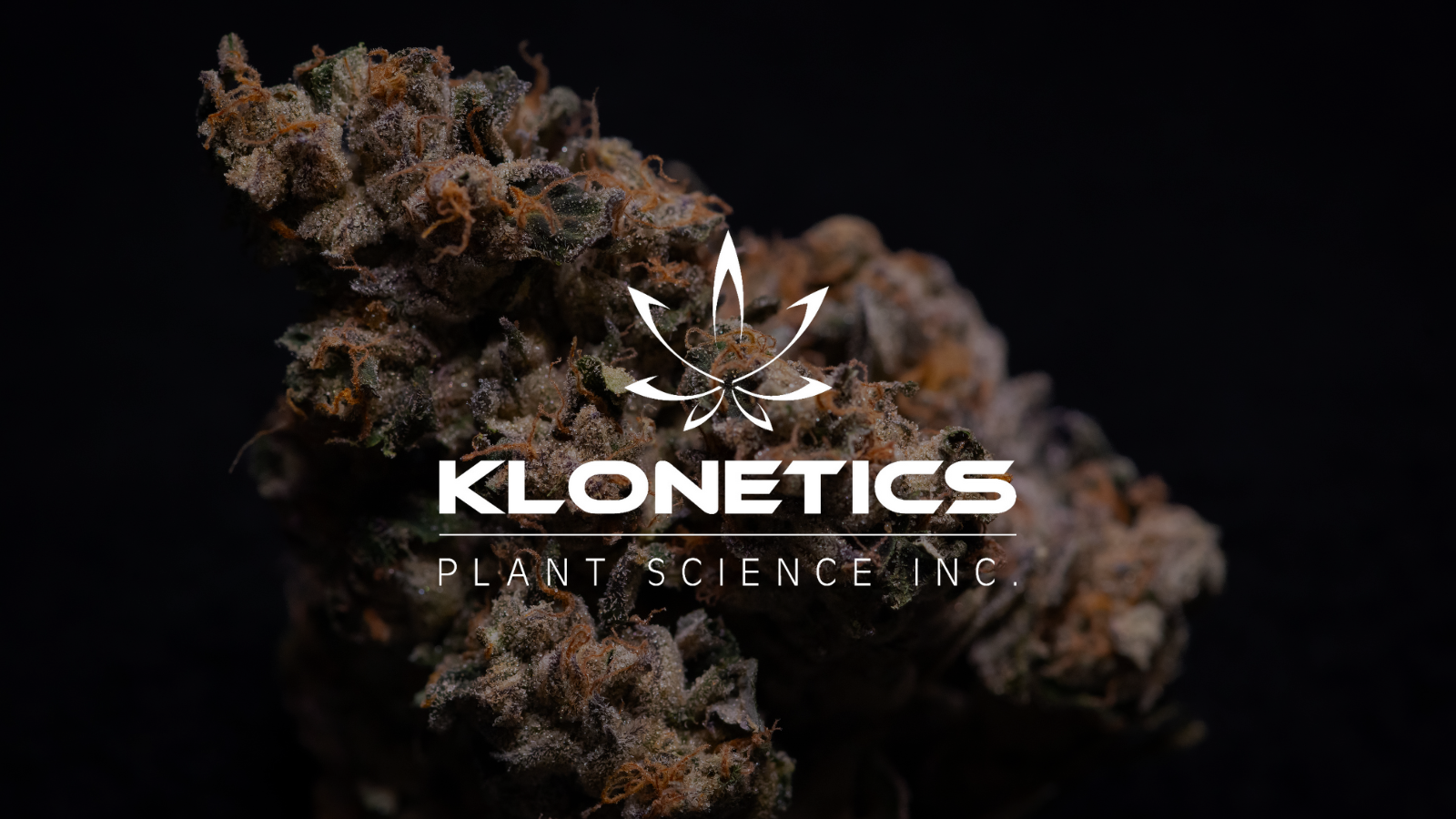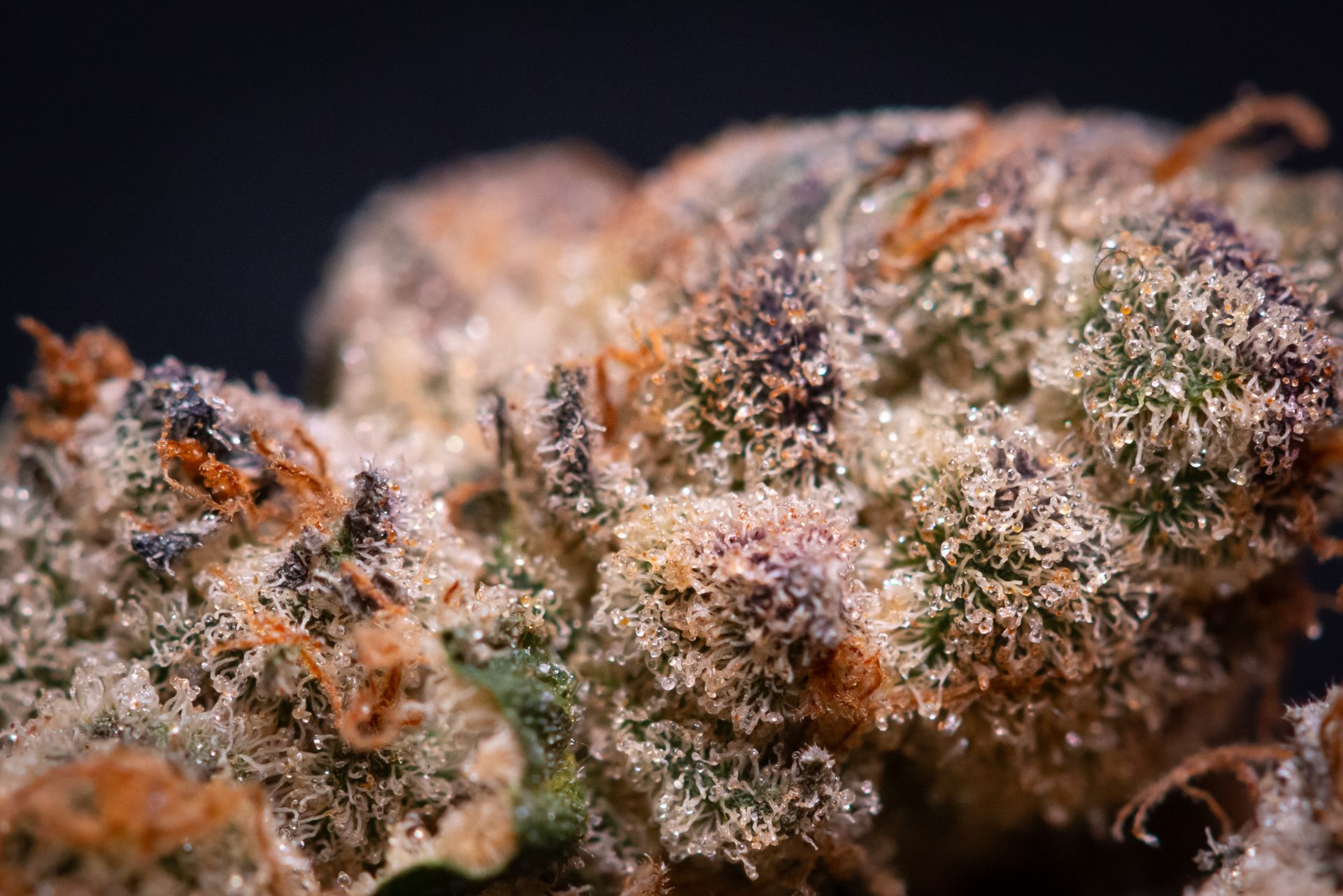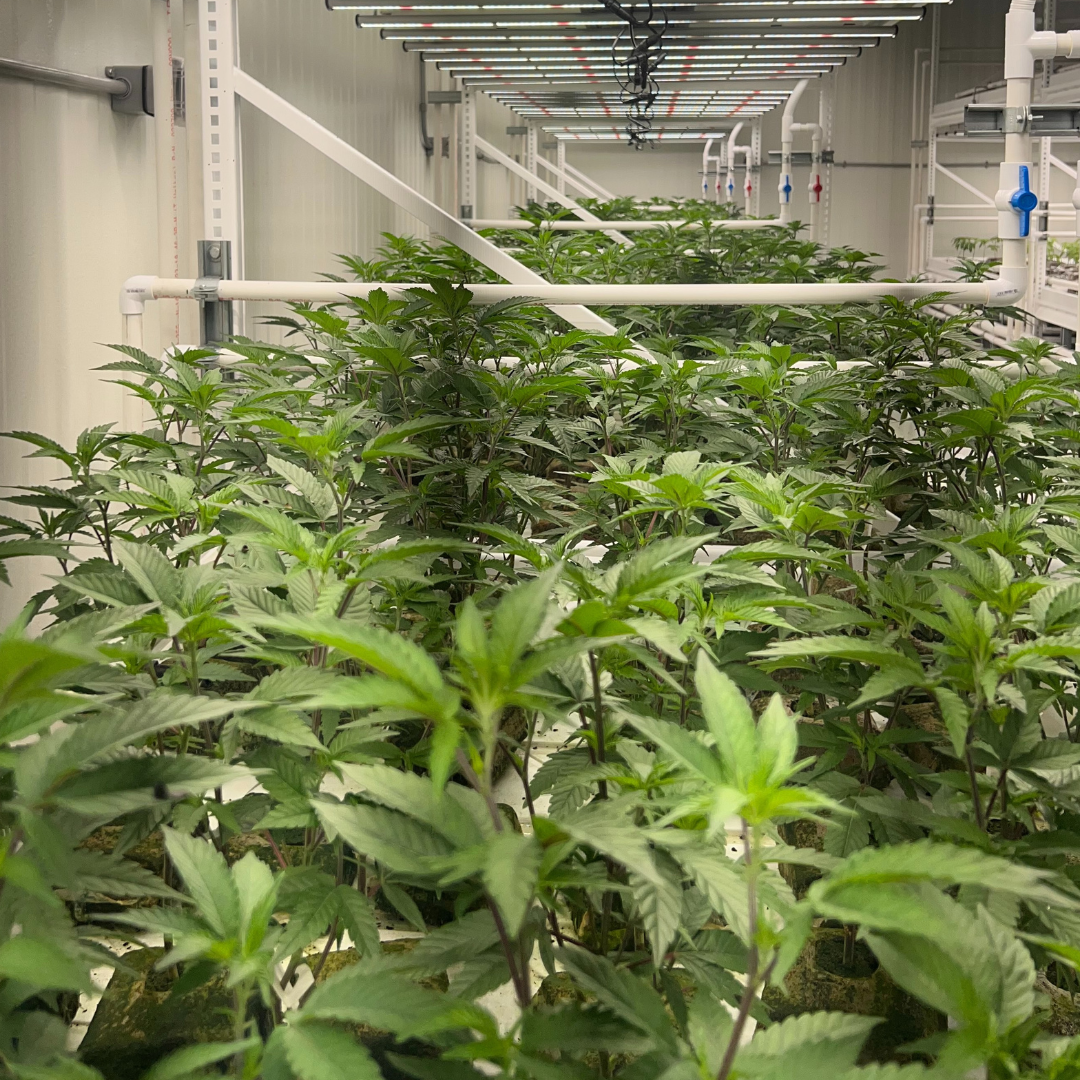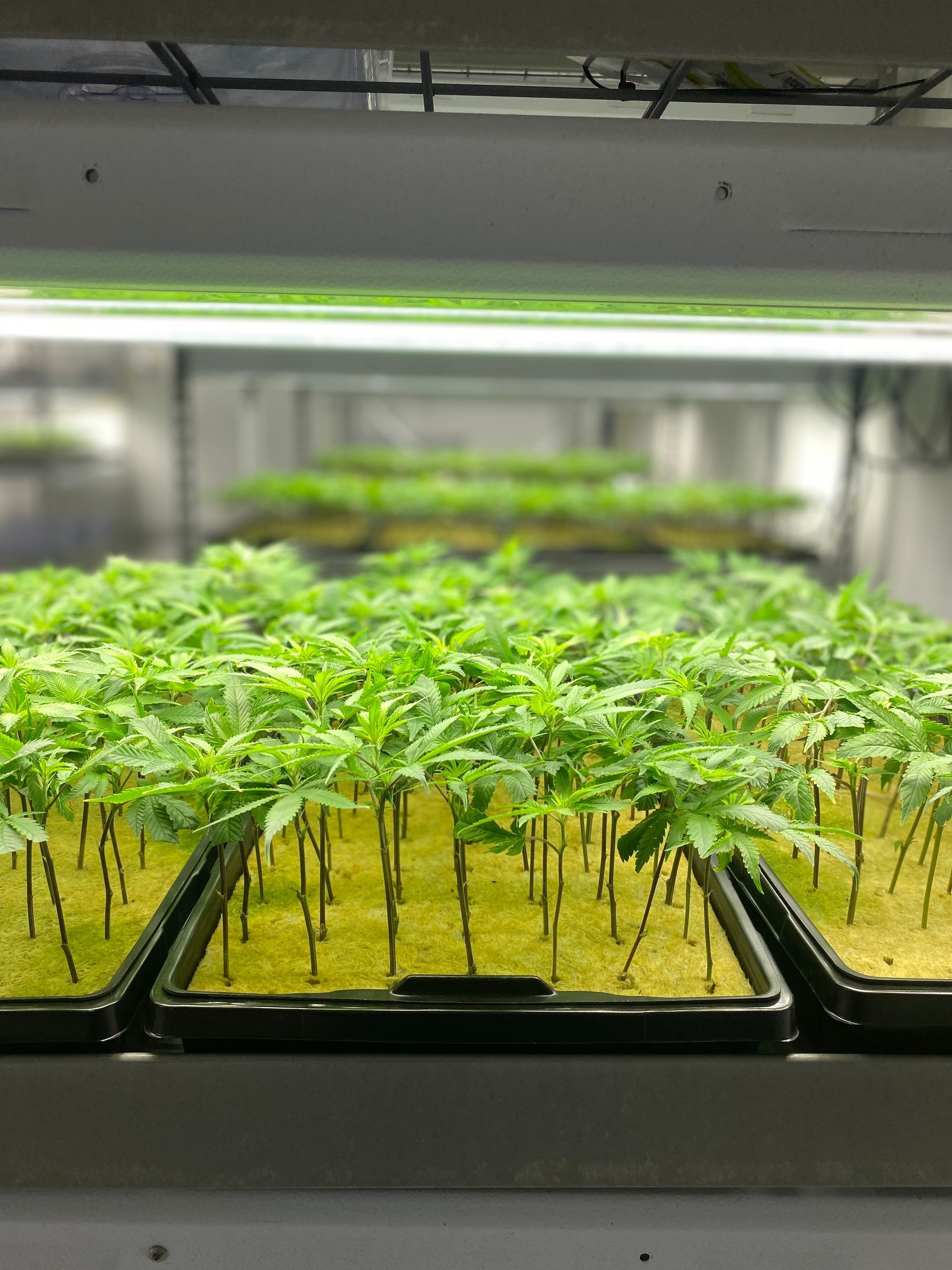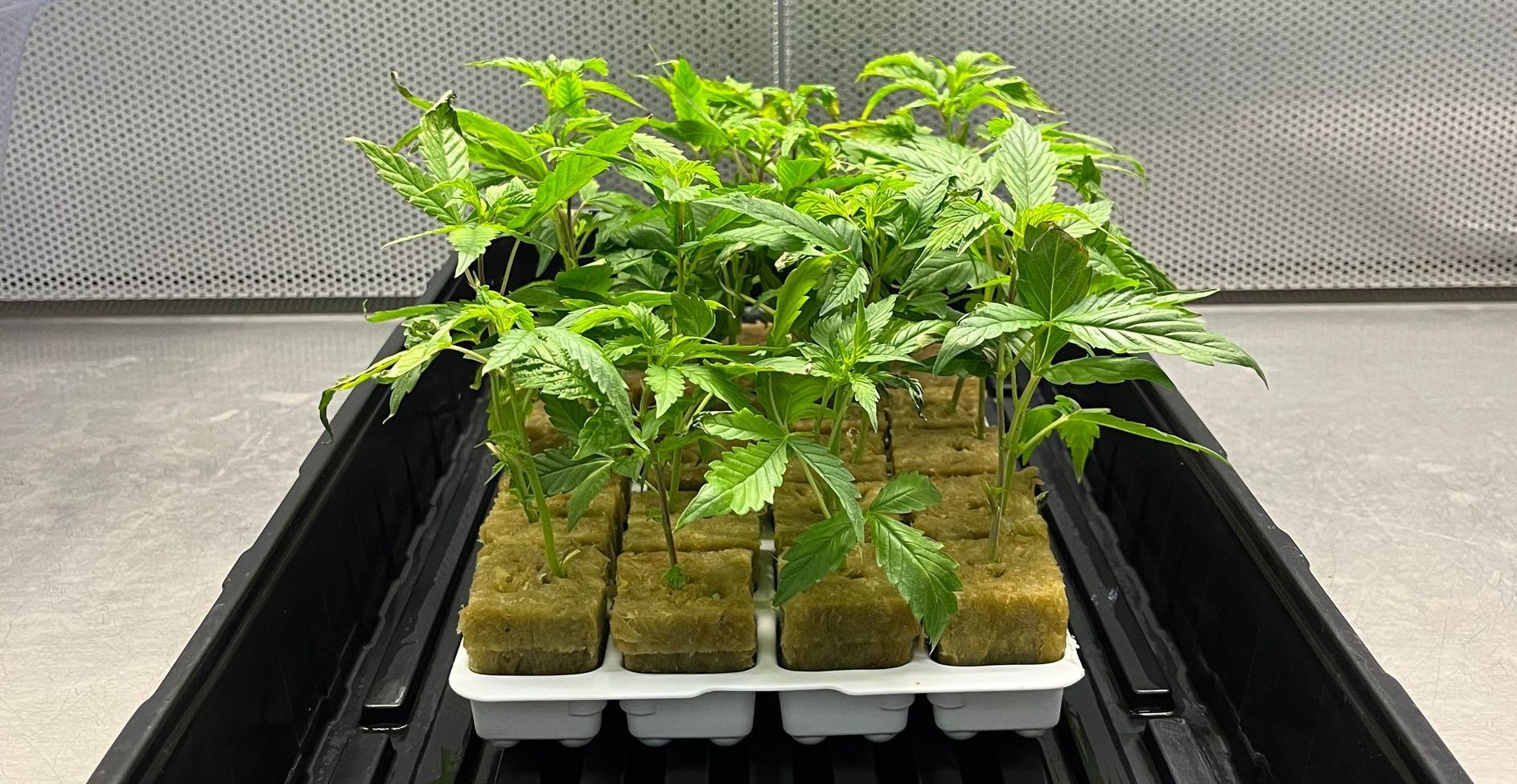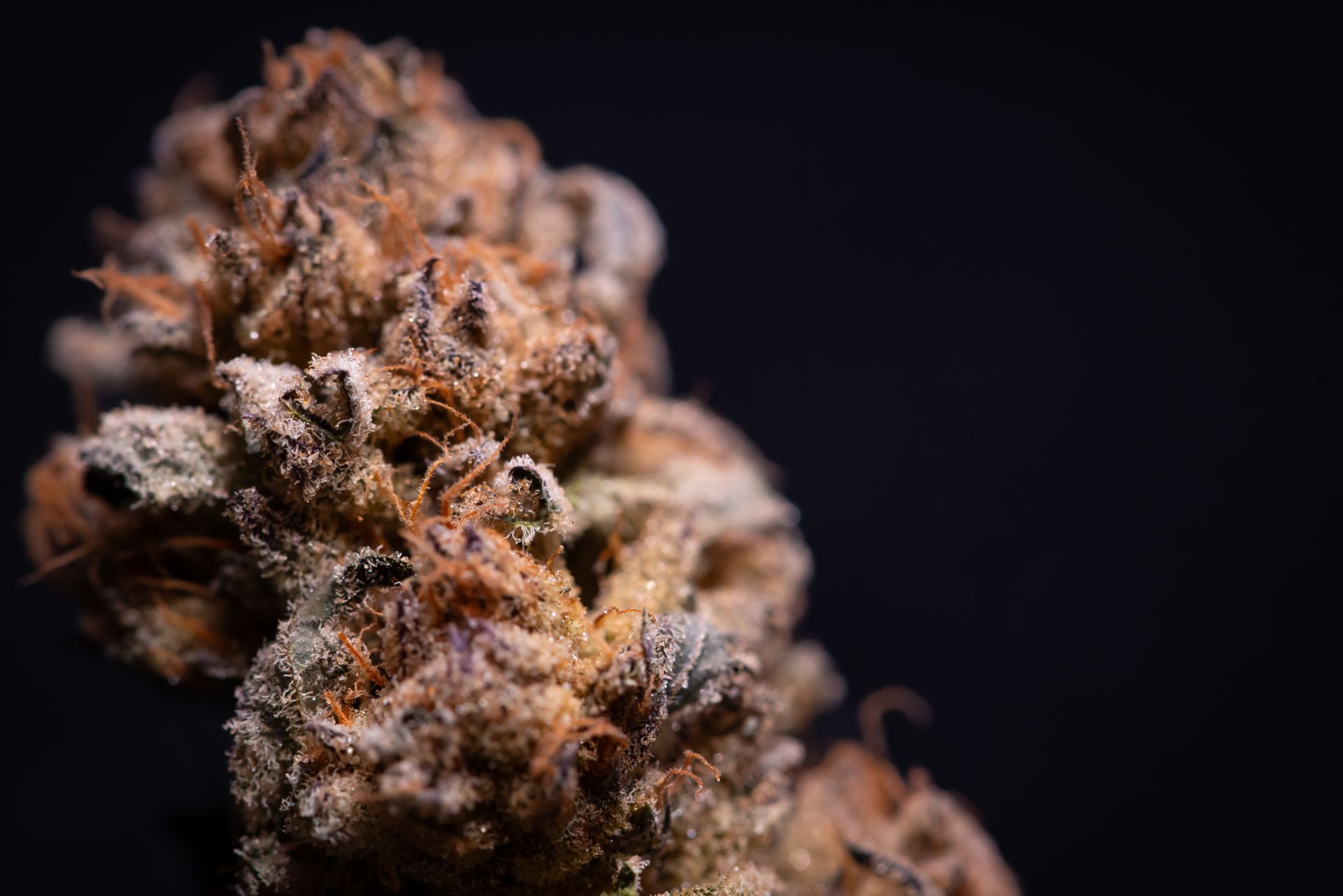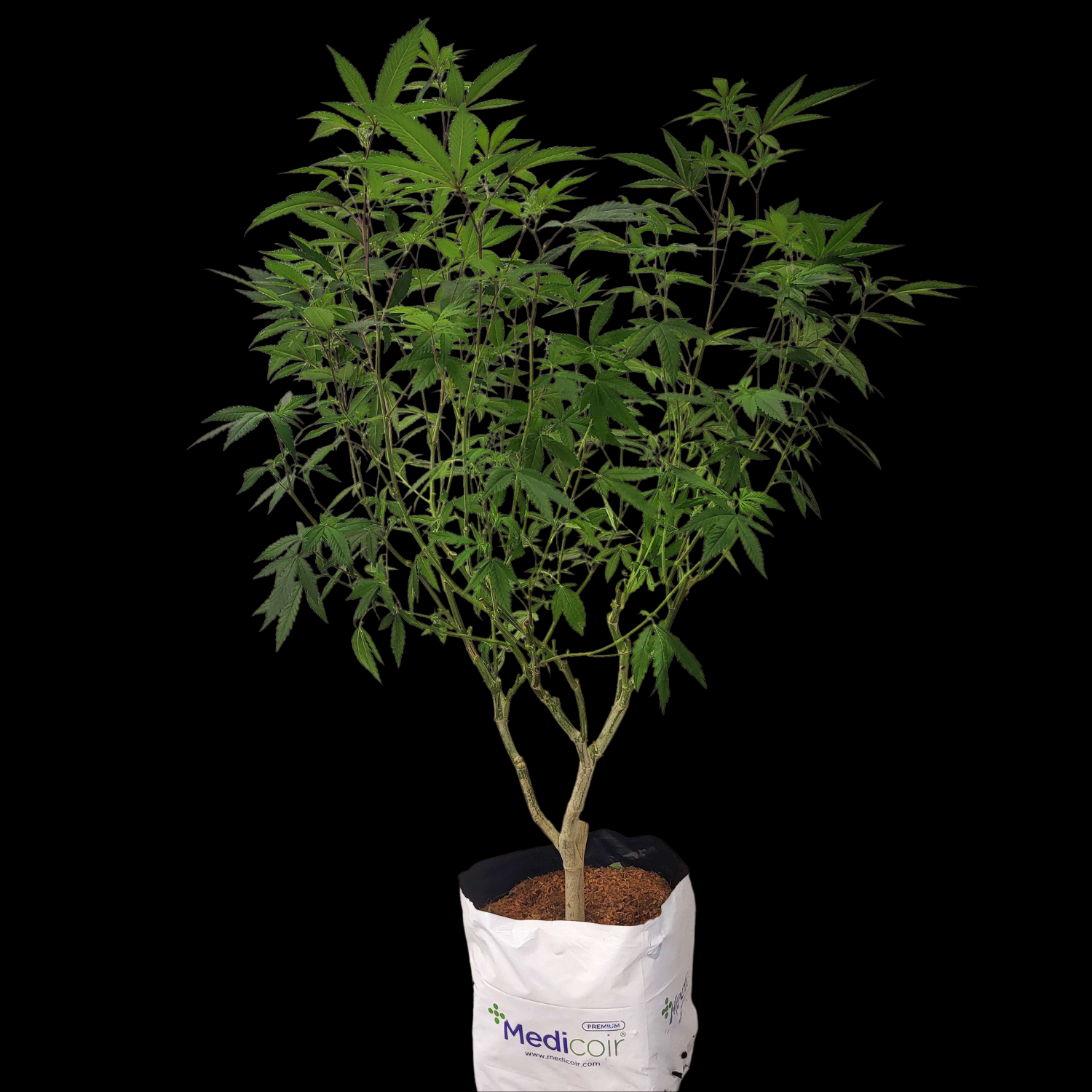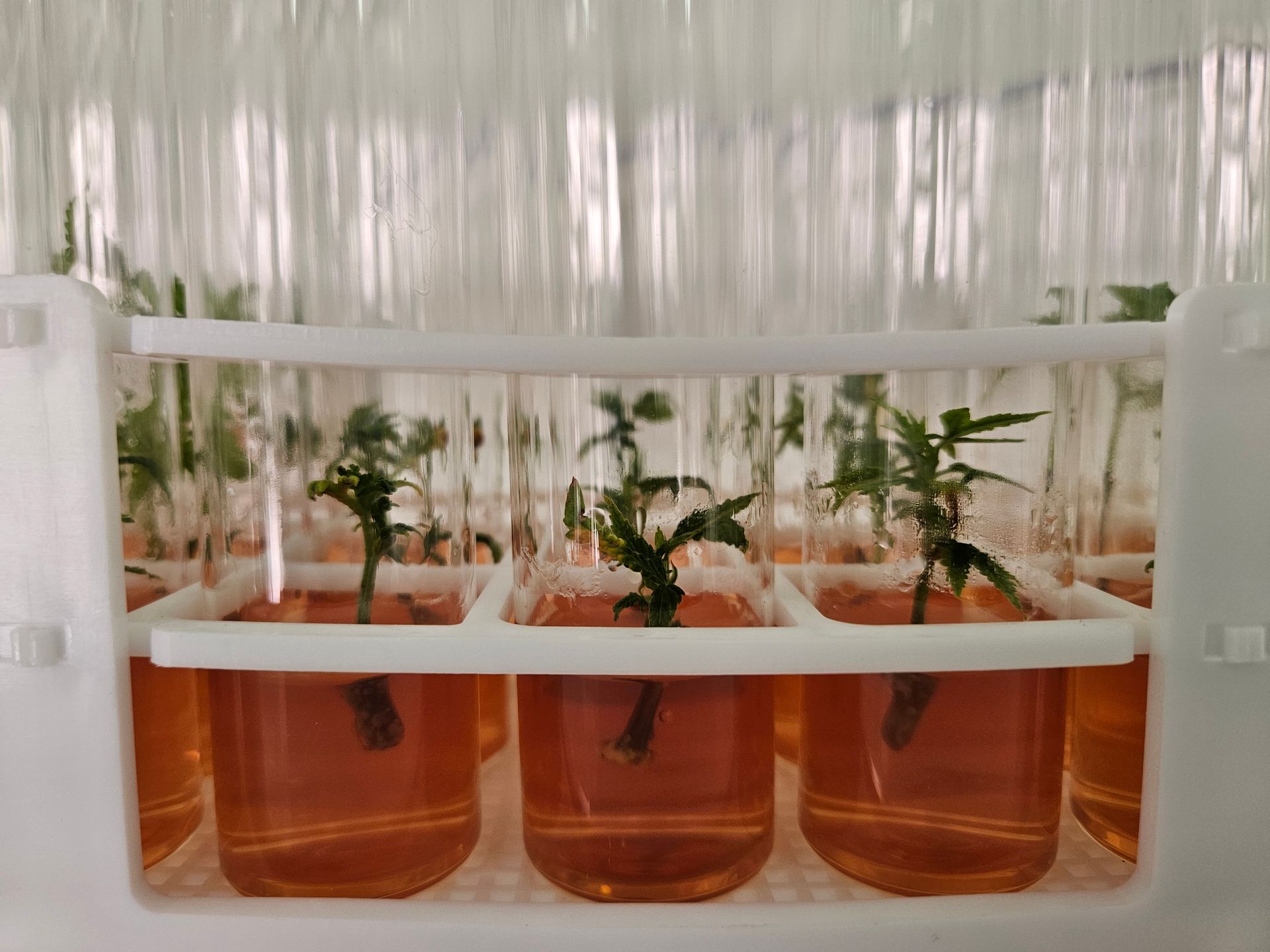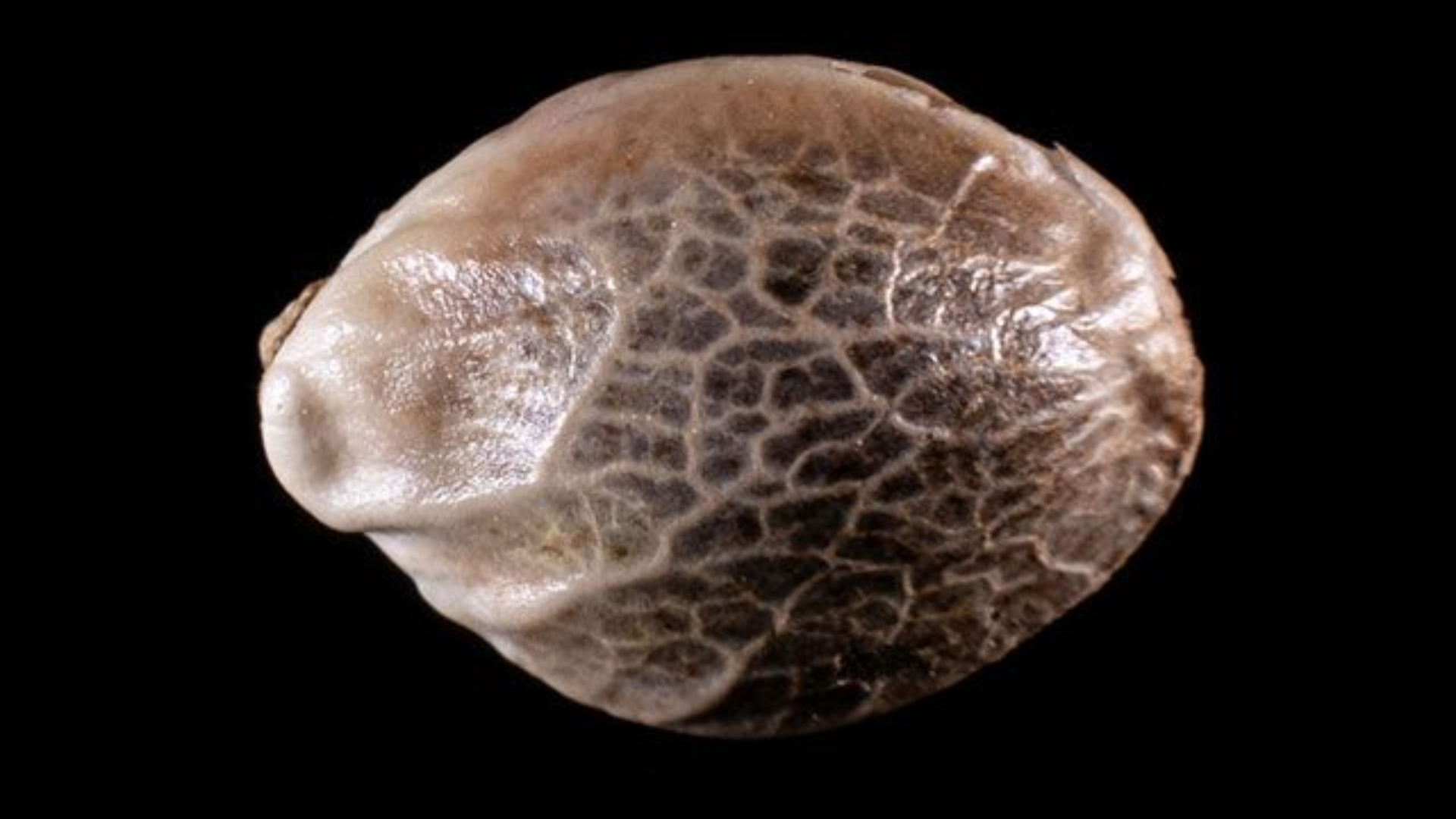Micropropagation Cannabis Plants: Modern Growth Methods
Micropropagation Cannabis Plants: Modern Growth Methods
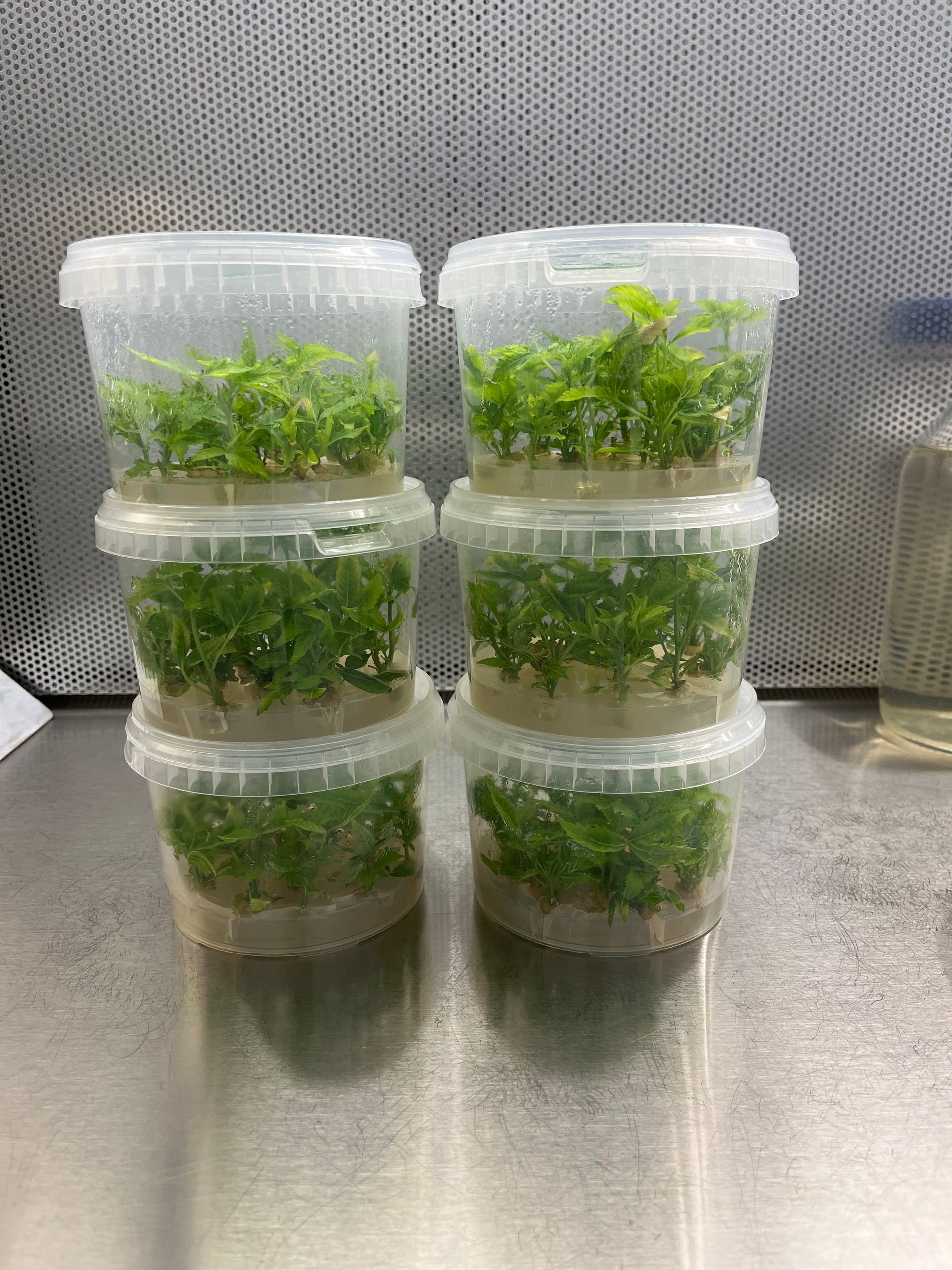
Did you know that cannabis micropropagation can produce thousands of plants from a single small tissue sample? This revolutionary biotechnology is rapidly transforming the cannabis industry, enabling unprecedented efficiency and genetic fidelity. At Klonetics Plant Sciences, we are pioneering the use of these cutting-edge tissue culture techniques to propagate high-quality cannabis plants for our clients.
A vibrant, detailed laboratory setting showcasing the micropropagation process of cannabis plants, featuring glass containers with healthy green plant tissue, nutrient-rich agar gel, sterile instruments, and bright fluorescent lights illuminating the scene. Include close-up views of plantlets emerging from the agar, surrounded by scientific equipment like pipettes and magnifying glasses, all set against a clean, modern backdrop.
Micropropagation, also known as in vitro propagation, is a highly reliable method for rapidly multiplying cannabis plants while maintaining their genetic integrity. By carefully controlling the growing environment and nutrient conditions, we can produce true-to-type propagules on a massive scale, far exceeding the capabilities of traditional propagation methods.
In this article, we'll explore the fundamental principles of cannabis tissue culture, the essential equipment and setup required, and the key stages of the micropropagation process. Additionally, we'll discuss strategies for optimizing growth media and environmental conditions to ensure the highest quality and yield. Finally, we'll delve into the commercial applications and scaling considerations for this revolutionary technology.
Key Takeaways
- Micropropagation enables the production of thousands of genetically identical cannabis plants from a single small tissue sample.
- Careful control of the growing environment and nutrient conditions is crucial for maintaining genetic fidelity and maximizing yield.
- The micropropagation process involves five distinct stages: stock plant preparation, establishment of aseptic cultures, multiplication, root induction, and acclimatization.
- Optimizing growth media and environmental factors, such as temperature and lighting, can significantly improve plant growth and quality.
- Micropropagation is becoming an essential tool for cannabis cultivators, researchers, and conservationists, driving advancements in the industry.
Understanding Cannabis Tissue Culture Fundamentals
Cultivating cannabis plants through tissue culture techniques offers a remarkable opportunity to produce high-yielding, genetically uniform, and disease-resistant plants. This advanced method involves growing plant cells and tissues on sterile nutrient media under carefully controlled environmental conditions.
The Science Behind Plant Cell Culture
The science behind plant cell culture enables the rapid multiplication of genetically identical plants, preserving the desired traits and genetics. By regenerating an entire plant from a single cell, tissue culture allows growers to maintain the genetic integrity and purity of their cannabis strains.
Benefits of Aseptic Growing Conditions
Maintaining aseptic conditions is crucial in tissue culture systems, as it prevents the introduction of contaminants and ensures the production of disease-free plants. Around 90% of cannabis crops in California are affected by HpLVD infection (Hop latent viroid), which can be mitigated through the sterile environment of tissue culture.
Key Components of Tissue Culture Systems
Successful cannabis tissue culture requires a carefully crafted system, including nutrient-rich media, growth hormones, and precise control over environmental factors like light and temperature. These key components work together to stimulate the rapid growth and development of cannabis plants, offering a solution to the space constraints of traditional growing methods.
"Cannabis tissue culture enables the production of disease-free plants due to the technique being performed in complete sterile conditions."
Micropropagation Cannabis Plants: Essential Equipment and Setup
In the world of commercial cannabis cultivation, micropropagation has emerged as a game-changing technique. This advanced method of plant propagation allows for the rapid and consistent production of genetically identical, disease-free cannabis plants. At Klonetics Plant Sciences, we've mastered the art of cannabis micropropagation, leveraging specialized sterile laboratory equipment and precisely controlled growth chambers to optimize the process.
The foundation of our cannabis micropropagation protocols begins with a sterile laboratory environment. Our team utilizes laminar flow hoods to maintain the highest levels of cleanliness, ensuring that no contaminants compromise the delicate plant tissue cultures. Autoclaves are essential for sterilizing growth media, tools, and instruments, while pH meters and balances help us precisely formulate the optimal nutrient-rich media for cannabis growth.
"Micropropagation is the future of cannabis cultivation, enabling us to produce disease-resistant, genetically superior plants at an unprecedented scale."
The heart of our operation lies in the carefully controlled growth chambers, where temperature, humidity, and lighting conditions are meticulously monitored and adjusted to mimic the ideal environment for cannabis tissue culture. By maintaining temperatures around 26-28°C, we foster the rapid multiplication and development of cannabis plantlets, setting the stage for a successful transition to the final stages of the micropropagation process.
Through our rigorous protocols and state-of-the-art equipment, Klonetics Plant Sciences is at the forefront of the cannabis micropropagation revolution. By leveraging these advanced techniques, we're able to consistently deliver high-quality, disease-resistant plants that meet the ever-growing demand of the cannabis industry.
Stages of Cannabis Micropropagation Process
Cultivating high-quality cannabis plants at scale requires a strategic approach to propagation. At Klonetics Plant Sciences, we employ advanced cannabis cloning and plant propagation techniques, including tissue culture, to ensure a consistent and reliable supply of healthy, genetically-superior plants.
Mother Plant Selection and Preparation
The foundation of our micropropagation process begins with the careful selection of robust, disease-free mother plants. These mother plants are the source of the desired genetic traits and must exhibit vigorous growth and optimal characteristics. Proper preparation of the mother plants is crucial to establish a sterile, productive culture.
Establishment of Sterile Cultures
To initiate sterile cannabis cultures, we follow meticulous surface sterilization protocols, often utilizing sodium hypochlorite solutions. This ensures that the plant explants are free of any microbial contaminants, laying the groundwork for successful tissue culture techniques.
Multiplication and Growth Phases
During the multiplication phase, the cannabis plantlets are grown and subdivided on specialized culture media, often supplemented with plant growth regulators like cytokinins (e.g., BA or 2iP). This allows for rapid, mass propagation of the desired genotypes, ensuring a consistent supply of high-quality planting material.
Rooting and Acclimatization
The final stages of the micropropagation process involve inducing root formation using auxins such as IBA or NAA, followed by the delicate process of acclimatizing the plantlets to ex vitro conditions. This transition requires carefully controlled environments to ensure the successful establishment of the cannabis clones in the field or greenhouse.
By mastering these critical stages of the cannabis micropropagation process, Klonetics Plant Sciences provides its clients with a reliable and consistent supply of high-performance cannabis plants, empowering them to achieve exceptional yields and product quality.
Optimizing Growth Media and Environmental Conditions
At Klonetics Plant Sciences, we understand that optimizing growth media and environmental conditions is crucial for successful cannabis micropropagation. Our research has shown that specific media formulations, pH levels, and environmental controls can significantly impact the growth and development of cannabis tissue cultures.
Studies have demonstrated that Murashige and Skoog (MS), Linsmaier & Skoog (LS), and Driver & Kuniyuki Walnut (DKW) media formulations are superior for cannabis tissue culture. Maintaining a pH between 5.8 and 7.0 generates a greater number of lateral nodes, while sucrose concentrations ranging from 1.5% to 3.0% have shown better growth results. Additionally, optimal growth room temperatures between 26°C and 28°C, along with precise control over light intensity and photoperiod, play crucial roles in the success of our tissue culture processes.
"The DKW medium with 2% sucrose in a filtered vessel showed superior performance for in vitro cannabis flower production."
By carefully monitoring and adjusting these cannabis cultivation methods, growth optimization, and environmental controls, we are able to consistently produce healthy, viable cannabis plantlets that are ready for acclimatization and transplantation. Our commitment to scientific innovation and excellence ensures that our clients receive the highest quality micropropagated cannabis plants for their cultivation needs.
Commercial Applications and Scaling Considerations
As the cannabis industry continues to grow and evolve, the commercial applications of micropropagation techniques become increasingly valuable. Klonetics Plant Sciences, a leading provider of cannabis tissue culture solutions, has made significant strides in optimizing mass production protocols for large-scale operations.
Mass Production Protocols
Klonetics' team of experts has developed efficient mass propagation methods that leverage their deep understanding of cannabis biology. By carefully refining media formulations, environmental conditions, and handling procedures, they can achieve high multiplication rates while maintaining genetic stability and desired trait expression. This allows for the reliable production of disease-free, genetically identical plants at scale, meeting the demands of the expanding cannabis market.
Quality Control Measures
Consistent quality is paramount in the cannabis industry, and Klonetics places a strong emphasis on comprehensive quality control measures. Regular testing for genetic fidelity, pathogen presence, and the expression of target phenotypes ensures that each batch of micropropagated plants meets the highest standards. This rigorous approach helps cannabis cultivators and producers maintain the integrity of their genetic resources and deliver a consistently high-quality product to consumers.
Cost-Benefit Analysis
While the initial setup costs for a commercial-scale micropropagation facility may be high, the long-term benefits of this technology make it a highly attractive option for cannabis growers and producers. Klonetics' research has demonstrated that the increased efficiency, space utilization, and disease resistance of micropropagated plants can result in significant cost savings over traditional cultivation methods. Moreover, the ability to preserve rare and valuable genetics makes micropropagation an essential tool for the ever-evolving cannabis industry.
Cannabis tissue culture has come a long way since its origins in the early 20th century, and Klonetics Plant Sciences is at the forefront of this transformative technology. By leveraging their expertise and commitment to innovation, the company is empowering cannabis professionals to scale their operations, maintain quality control, and unlock new avenues for growth.
FAQ
What is micropropagation and how is it used for cannabis plants?
Micropropagation is a valuable method for propagating hemp plants, offering an aseptic process and true-to-type propagules production. The technique requires small amounts of tissue (explants) to produce thousands of mature plants. It's gaining favor among conservationists for propagation and conservation of endangered plant species.
What is the process of plant tissue culture for cannabis cultivation?
Plant tissue culture involves growing plants on sterile nutrient media under controlled environmental conditions. For cannabis, it offers the chance to cultivate high-yielding, quality, and gene-specific uniform plants. The process requires healthy plant tissues, a sterile environment, and strict adherence to protocols.
What essential equipment is required for cannabis micropropagation?
Essential equipment includes laminar flow hoods for maintaining sterile conditions, autoclaves for sterilizing media and tools, growth chambers for controlling environmental factors, and specialized lighting systems. The setup requires a sterile laboratory environment with precise temperature and humidity control.
What are the key stages of the cannabis micropropagation process?
The process involves several stages: mother plant selection, establishment of sterile cultures, multiplication and growth, rooting, and acclimatization. Proper media preparation and handling procedures are crucial at each stage.
How can growth media and environmental conditions be optimized for successful cannabis micropropagation?
Optimizing growth media and environmental conditions is crucial. Studies have shown that specific media formulations, pH levels, sucrose concentrations, and temperature and lighting conditions can enhance tissue culture success.
What are the commercial considerations for scaling up cannabis micropropagation?
Commercial applications require scaling up laboratory processes, optimizing media and conditions for mass production. Quality control measures, including genetic stability testing and pathogen screening, are essential. While initial setup costs are high, micropropagation can be more economical in the long run due to efficiency and disease-free plant material.

Ready to Reach Out?
We would love to hear from you.
Sign up to our newsletter
We will get back to you as soon as possible
Please try again later
All Rights Reserved | Klonetics Plant Science Inc.

